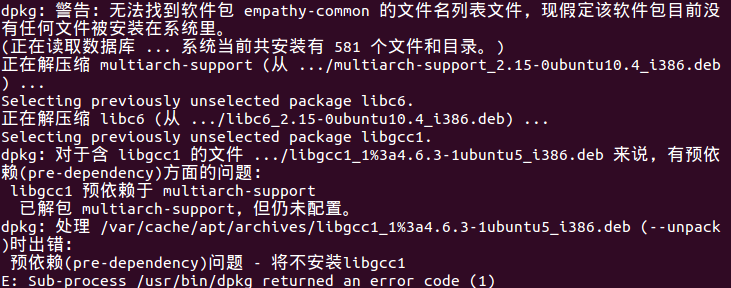The one that worked was sudo apt-get install linux-image-generic-lts-utopic: The advantage of this partial rethinking of the file system hierarchy is that all libraries have a canonical path. That makes it possible to co-install include files that differ between architectures. Ask Ubuntu is a question and answer site for Ubuntu users and developers. Nothing is uninstalled except the bit kernel. So what can we do with multiarch?
| Uploader: | Akik |
| Date Added: | 21 April 2014 |
| File Size: | 10.75 Mb |
| Operating Systems: | Windows NT/2000/XP/2003/2003/7/8/10 MacOS 10/X |
| Downloads: | 28164 |
| Price: | Free* [*Free Regsitration Required] |
The basic idea behind multiarch is to generalize the biarch design to arbitrary architectures, and the way it is done is actually quite simple, Wookey maintains: Obviously all libraries have to be made multiarch-ready, but also most -dev packages need converting as well, using a similar directory naming scheme as for libraries.
The depending packages specify how they use it.

Sign up to join this community. This only brought the error up with libfuse. Post as a guest Name.
Subscribe to RSS
Please check that the reverse-build-depends of your package still work multiarch-suport conversion. Wookey made it clear that the multiarch development is a classic example of a significant distribution-wide change, which is generally very difficult to do right. The application is proprietary, so I can't even recompile it for bit.
This is both laughably naive and treasonous! Hosting provided by Metropolitan Area Network Darmstadt. Multiarch is a general solution for installing libraries of more than one architecture on the same system.
The answer is that there is no reliable way to automatically convert a package to multiarch. Note how the open source community as a whole has this emphasis on 'rock stars. I have the 32 bit shared libraries installed, yet I am still getting this error while trying to install pogoplug: If you do not have an install: For this command, 100.04 output is Multi-Arch: Recipes for converting packages dh 1 and autotools The simplest package to convert is one that uses autoconf upstream multirach-support dh 1 in the Debian packaging.
10.04 are three main exceptions: Note that include dir does not contain the triplet part. As already mentioned, multiarch makes cross-compilation much simpler: For some libraries, it's possible to have both the bit and bit libraries installed on a mulltiarch-support system. An executable has the value "foreign": Another advantage is that you can just run the build tools under QEMU via binfmt-misc for testing.
ubuntu5 : binutils-multiarch : amd64 : Lucid () : Ubuntu
If your library is currently bundled in ialibsproviding a multiarch package helps with the process of multiarchs-upport ialibs from the archive. Shared library support files for advice on dealing with any such executables currently included in your runtime library package.
More details of using Qbs in debian are available.

Should I just do a full install after all? Users can use your library package with userspace emulators such as qemu without needing to use a dedicated chroot - making it easier to build environments that emulate only the parts that need emulating. I would not worry too much about it. The error indicates that Ubuntu does not provide a package named "linux-image-amd64".
Ubuntu – Package Search Results -- multiarch-support
Thanks to tight integration with the Android service layer, the transition between the two environments is seamless, making it easy to access the phone's services from the desktop when docked.
Since the bit fuse library is not supplied with ialibsyou've no other choice than building it yourself. Together with 14 multiarch libraries in a PPA Personal Package Archivethis was already enough to cross-install the bit Flash plugin on a bit system. See the release notes for details. I found a guide to upgrading a Debian system that starts with installing the bit kernel[1], but the instructions therein don't multiarch-suppirt for me: Other than a multiarch path for executables, such a system would require kernel support or boot-time symlinking.

No comments:
Post a Comment